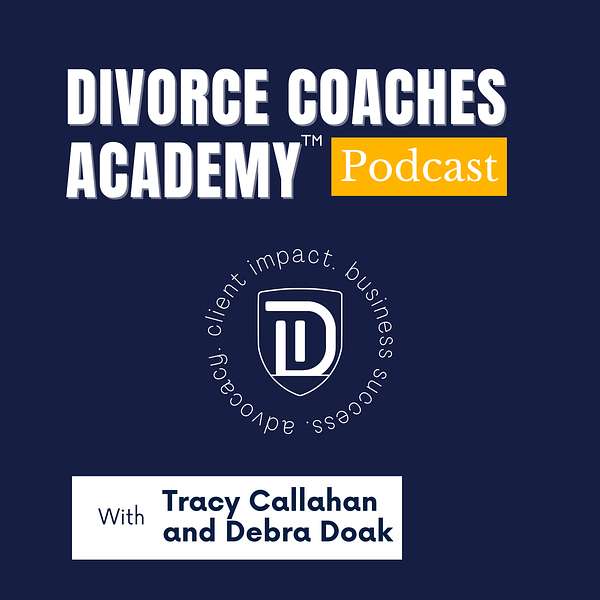
Divorce Coaches Academy
Divorce Coaches Academy podcast hosts Tracy Callahan and Debra Doak are on a mission to revolutionize the way families navigate divorce. We discuss topics to help professional divorce coaches succeed with clients and meet their business goals and we advocate (loudly sometimes) for the critical role certified divorce coaches play in the alternative dispute resolution process. Our goal is to create a community of divorce coaching professionals committed to reducing the financial and emotional impact of divorce on families.
Divorce Coaches Academy
Email Marketing for Divorce Coaches: Your Secret Weapon
Send Us a Message (include your contact info if you'd like a reply)
Have you been pouring endless energy into social media with minimal return for your divorce coaching practice? It might be time to unlock the most powerful marketing tool you're probably neglecting—your email list.
Trust serves as the cornerstone of the coach-client relationship, particularly when guiding someone through the emotional complexities of divorce. While social platforms broadcast your message widely, they lack the intimacy and privacy that email marketing delivers directly to your ideal client's inbox. As we often remind our coaching community, "If social media is the cocktail party, email marketing is meeting up for coffee."
The statistics don't lie—email marketing consistently outperforms social media in conversion rates, especially for service-based businesses like divorce coaching. Why? Because your subscribers have already demonstrated interest by sharing their email address, creating a warm lead that's significantly more likely to become a paying client. Plus, you completely own this asset. No algorithm changes, no shadow bans, no disappearing followers—just a direct line to people who've expressed interest in your expertise.
We walk you through creating compelling lead magnets that address specific pain points for divorcing individuals—from co-parenting communication guides to money-saving divorce checklists. The real magic happens in what follows: a thoughtfully crafted nurture sequence that builds trust, demonstrates your expertise, and gently guides potential clients toward working with you. Most importantly, we share how to confidently extend invitations to your services without coming across as pushy or sales-focused.
Whether you're just starting your coaching practice or looking to grow your established business, this episode provides a clear roadmap for building an email strategy that converts interested prospects into paying clients. Take one action step this week—choose an email provider, brainstorm lead magnet ideas, or draft your first nurture sequence. Your future clients are waiting in your inbox!
Learn more about DCA® or any of the classes or events mentioned in this episode at the links below:
Website: www.divorcecoachesacademy.com
Instagram: @divorcecoachesacademy
LinkedIn: divorce-coaches-academy
Email: DCA@divorcecoachesacademy.com